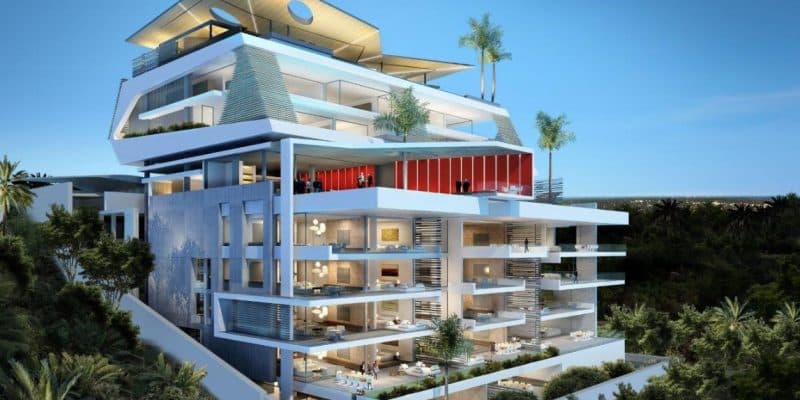The World Bank's 2021 training programme for 150 government officials, architects, academics, engineers, bankers and other building specialists in Senegal will not have been in vain. The group has just honoured two property developers for taking climate and environmental considerations into account in the construction of six buildings.
Better known for its investments in finance, industry, energy, logistics and telecommunications, the Teyliom group, which operates in Central and West Africa, has been rewarded for its environmentally-friendly buildings in Dakar, Senegal. Its subsidiary Teyliom Properties, set up in 2005 by businessman Yérim Habib Sow, has just been awarded the Edge label (Excellence in Design for Greater Efficiency) by the International Finance Corporation (IFC), the private sector arm of the World Bank Group.
This certification, supported by the European Investment Bank (EIB) via its Climate Change Finance Gap Fund, has also been awarded to property developer Duo Real Estate. The company has focused on energy efficiency in the construction of a 40-unit flat block. This intelligent building is powered by solar energy and uses home automation.
This is a technology that allows residents to automatically manage their heating, air conditioning, lighting, temperature and even water consumption. “These new buildings will prevent the emission of more than 220 tonnes of carbon dioxide (CO2) per year,” says the IFC, whose Edge programme is coordinated in West Africa by Dennis Papa Odenyi Quansah.
Read also- SENEGAL: 3,500 illegal settlements obstruct water drainage in Dakar
This initiative, which promotes, among other things, the installation of low-flow taps, the introduction of wastewater management systems and the use of so-called “green” cements, should enable Senegal to comply with the Paris Climate Agreement, which focuses on the carbon neutrality of infrastructure. The Senegalese authorities, in particular the Ministry of Urban Planning, Housing and Public Hygiene, intend to draw on the Directive laying down energy efficiency measures in the construction of buildings. The text was adopted in June 2020 by the West African Economic and Monetary Union (WAEMU).
Benoit-Ivan Wansi







